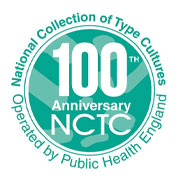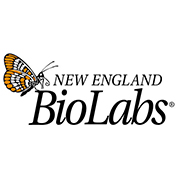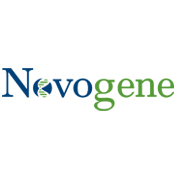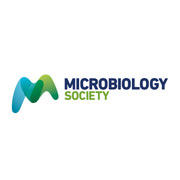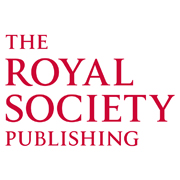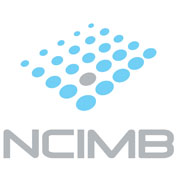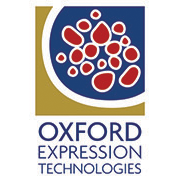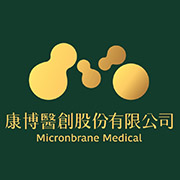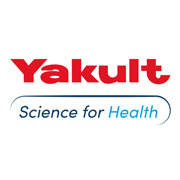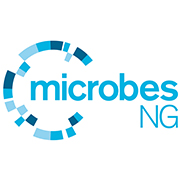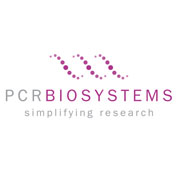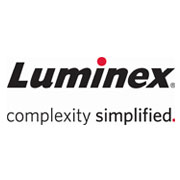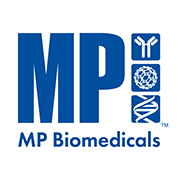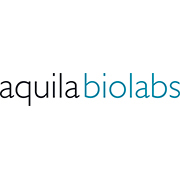Given the complex and changing nature of the pandemic, the Council of the Microbiology Society, supported by our Scientific Conferences Committee, recently made the decision to transition our planned Annual Conference in Birmingham in 2021 to an online event.
The event has been designed as a digital version of the Society’s flagship annual meeting whose symposia and activities are designed to achieve the same scientific and networking objectives.
Annual Conference Online 2021 takes place over five days and consists of symposia, workshops, forums, offered oral presentations and Prize Lectures from eminent microbiologists. It is being produced to offer ample opportunities for formal and informal online networking for both early career and established microbiologists.
The Scientific Conferences Panel has now finalised the sessions across the week. Confirmed sessions include:
Symposia
- Bacterial metabolites as modulators of host physiology
- Microbial biotechnology
- Marine microbiology – from the ocean to the lab and beyond
- Exploring the eukaryotic tree of life
- AMR
- The secret life of mobile genetic elements
- Phage biology
- Public health microbiology
Virus Workshops
- SARS-CoV-2 and the COVID-19 pandemic: molecular virology and immunology
- SARS-CoV-2 and the COVID-19 pandemic: clinical and translational
- Visualising viruses
- RNA viruses
- DNA viruses
Eukaryotic and Prokaryotic Fora
- Environmental and applied microbiology
- Genetics and genomics
- Infection
- Microbial physiology, metabolism and molecular biology
Microbiology Society Professional Development
- Careers in microbiology
- Essential skills: entrepreneurship
- Essential skills: how to secure a fellowship
- Teaching microbiology in higher education
- ECM career workshop: coping with the pandemic
Microbiology Society Policy
- The impact of the UK-EU deal on scientific research and innovation
Microbiology Society Publishing
- Open research platform
Monday 26 April, Morning
AMR
-
Chair(s): Jennifer Ritchie (University of Surrey, UK); ECM co-Chair: Emily Bordeleau (McMaster University, Canada)
-
Addressing global AMR priorities: 5 BY 2025 - the Global Antibiotic Research and Development Partnership (GARDP)
-
Offered paper: The human gut microbiome as a reservoir of antibiotic resistance: linking antimicrobial resistance genes to their microbial hosts through metagenomic chromosome conformation capture
-
Offered paper: Tracking human and livestock farm environmental microbiota and resistome interconnection
-
Offered paper: Genetic diversity of antimicrobial resistance found in E.coli colonising travellers to Laos
-
Break
-
Chair(s): Jennifer Ritchie (University of Surrey, UK); ECM co-Chair: Benita Steven Arakal (Cardiff Metropolitan University, UK)
-
Spatial ecology of the transmission and spread of AMR across wastewater networks - More complex than you think
-
Offered paper: Characterisation of global regulatory changes in Staphylococcus aureus in response to household biocides
-
Offered paper: Selective Landscape of Drug Resistance in Experimentally-Evolved Biofilms Adapted to a Large Panel of Diverse Antimicrobials
-
Offered paper: Long-term exposure to octenidine in a simulated clinical setting results in selection of Pseudomonas aeruginosa, Citrobacter and Enterobacter isolates with mutations in efflux pump
Microbial physiology, metabolism and molecular biology
-
Chair(s): Gillian Fraser (University of Cambridge, UK); ECM co-Chair: Jack Leo (Nottingham Trent University, UK)
-
Offered paper: Molecular mechanisms of chemosensory signalling and chemoreceptor adaptation in beneficial and phytopathogenic bacteria
-
Chair(s): Martin Welch (University of Cambridge, UK); ECM co-Chair: Rebecca McHugh (University of Strathclyde, UK)
-
Offered paper: Cyclic di-GMP signalling in Pseudomonas aeruginosa: Connecting the dots in a multimodal network
-
Chair(s): Gillian Fraser (University of Cambridge, UK); ECM co-Chair: Rebecca McHugh (University of Strathclyde, UK)
-
Offered paper: Sugar Rush: The glucose-responsive two-component system linking Streptomyces exploration and secondary metabolism
-
Chair(s): Martin Welch (University of Cambridge, UK); ECM co-Chair: Jack Leo (Nottingham Trent University, UK)
-
Offered paper: Copper and glutathione - it's a GAS!
-
Chair(s): Gillian Fraser (University of Cambridge, UK)
-
Offered paper: Oxidative stress results in reduced susceptibility of Acinetobacter baumannii to aminoglycosides by inducing the expression of AdeAB efflux pump
-
Break
-
Chair(s): Delma Childers (University of Aberdeen, UK)
-
Offered paper: Functionally mapping the diversification of African trypanosomes using spatial proteomics
-
Offered paper: Massively parallel transposon mutagenesis identifies temporally essential genes for biofilm formation in Escherichia coli
-
Chair(s): Martin Welch (University of Cambridge, UK)
-
Offered paper: Asymmetric peptidoglycan editing generates the curvature of predatory bacteria, optimising replication within a spherical prey niche
-
Chair(s): ECM co-Chair: Jack Leo (Nottingham Trent University, UK)
-
Offered paper: A two-lane mechanism for selective biological ammonium transport
-
Offered paper: Impact of binding respiratory syncytial virus glycoprotein on pneumococcal cell division and integrity
Virus workshop: SARS-CoV-2 and the COVID-19 pandemic: molecular virology and immunology
-
Chair(s): Steve Griffin (University of Leeds, UK); Gerald Barry (University College Dublin, Ireland)
-
Risk Assessing Variants of SARS-CoV-2
-
Offered paper: SARS-CoV-2 B.1.1.7 triggers a less potent innate immune response than first wave isolates
-
Offered paper: SARS-CoV-2 alters the infected cell to evade natural killer cells but is recognised by antibody-dependent mechanisms
-
Offered paper: SARS-CoV-2 restriction by IFN-inducible short isoform of NCOA7
-
Break
-
Chair(s): Sam Wilson (University of Glasgow, UK); Elly Gaunt (University of Edinburgh, UK); ECM co-Chair: Ternenge Thaddaeus Appa (University of Nottingham, UK)
-
Offered paper: The polybasic cleavage site in the SARS-CoV-2 spike modulates viral 2 sensitivity to Type I interferon and IFITM2
-
Offered paper: Characterisation of protease activity during SARS-CoV-2 infection identifies novel viral cleavage sites and cellular targets for drug repurposing
-
Offered paper: Furin cleavage of SARS-CoV-2 Spike promotes but is not essential for infection and cell-cell fusion
-
Offered paper: Global analysis of protein-RNA interactions in SARS-CoV-2 infected cells reveals key regulators of infection
-
Offered paper: Convergent Evolution of SARS-CoV-2 Spike Amino Terminal Domain (NTD) Variants Arising During Passage In Vitro and In Vivo
Monday 26 April, Afternoon
AMR
-
Chair(s): Meera Unnikrishnan (Warwick University, UK); ECM co-Chair: Prerna Vohra (University of Edinburgh, UK)
-
Who guards the guards? Network structure in the activation of antibiotic resistance
-
Offered paper: Heroes and villains: The interactions between antibiotics and uropathogens to manage UTI
-
Offered paper: A genome wide analysis of innate resistance mechanisms of Escherichia coli to two increasingly used bactericidal antibiotics
-
Offered paper: Identification of auxiliary vancomycin resistance genes in Enterococcus faecium
-
Break
-
Chair(s): Meera Unnikrishnan (Warwick University, UK); ECM co-Chair: Marwa Hassan (University of Surrey, UK)
-
Known knowns & known Unknowns: Improving what we have and searching for new antimicrobials
-
Offered paper: Investigation of co-culturing and N-acetylglucosamine impacts on antimicrobial compound production profiles of soil isolates generated through the Microbiology Society’s Antibiotics Unearthed programme.
-
Offered paper: Identification of Novel Antimicrobial Peptides From Antelope Microbiomes for Treatment of Acinetobacter baumannii
-
Offered paper: Anti-biofilm activity of 1,000-year-old-remedy requires the combination of multiple ingredients.
Environmental and applied microbiology
-
Chair(s): Michael Cunliffe (Marine Biological Association, UK); ECM co-Chair: Rosa Santomartino (University of Edinburgh, UK)
-
Offered paper: Inhibition of ammonia monooxygenase from ammonia oxidising archaea by linear and aromatic alkynes
-
Offered paper: Identification of active methane oxidizers in a methane biofilter and isolation of a key methanotroph
-
Offered paper: The effects of a surfactant and biosurfactant on the community composition and enzyme activity of a freshwater biofilm
-
Offered paper: Air pollution affects the gut microbiome of buff-tailed bumblebees (Bombus terrestris)
-
Offered paper: Identification and characterization of ligninolytic bacteria and enzymes from larval gut of Rhynchophorus phoenicis
-
Break
-
Chair(s): ECM co-Chair: Rosa Santomartino (University of Edinburgh, UK)
-
Offered paper: Iron acquisition from ferredoxin by plant pathogenic Pectobacterium
-
Offered paper: Toxoflavin produced by Pseudomonas alcaliphila inhibits the growth of Legionella pneumophila.
-
Offered paper: Surviving seawater: biological traits for salinity tolerance in the model marine saprotrophic fungus Paradendryphiella salina.
-
Offered paper: Microbe-mineral interaction and biomining on the International Space Station
-
Offered paper: Finding Snowball Earth: an investigation of modern polar analogues for Cryogenian microbial habitats
Virus workshop: SARS-CoV-2 and the COVID-19 pandemic: molecular virology and immunology
-
Chair(s): Steve Griffin (University of Leeds, UK); Elly Gaunt (University of Edinburgh, UK)
-
Immune responses to SARS-CoV-2
-
Offered paper: The physical interaction landscape of highly pathogenic coronaviruses reveals drug targets
-
Offered paper: Host-directed therapies against early-lineage SARS-CoV-2 retain efficacy against recently emerged variants
-
Offered paper: In vitro evolution of Remdesivir resistance reveals genome plasticity of SARS-CoV-2
-
Break
-
Chair(s): Sam Wilson (University of Glasgow, UK); Gerald Barry (University College Dublin, Ireland)
-
Offered paper: Drug Repurposing Targeting the SARS-CoV-2 Envelope (E) Protein Ion Channel
-
Offered paper: Targeting the Sec61 translocon to inhibit SARS-CoV-2 replication
-
Offered paper: Targeting the evolutionary RGD motif in the spike protein of SARS-CoV-2 serves as a novel treatment option to prevent vascular damage during COVID-19
-
Offered paper: Identification of guanylyltransferase activity in the SARS-CoV-2 RNA polymerase
-
Offered paper: Secreted SARS-CoV-2 ORF8 modulates the cytokine expression profile of human monocyte-derived macrophages
Tuesday 27 April, Morning
Essential skills: how to secure a fellowship
-
Welcome and introduction
-
Strategy, application process, tips for successful applications part 1
-
Strategy, application process, tips for successful applications part 2
-
Strategy, application process, tips for successful applications part 3
-
Strategy, application process, tips for successful applications part 4
-
Break
-
Application Surgery
Marine microbiology - from the ocean to the lab and beyond
-
Chair(s): Michael Cunliffe (Marine Biological Association, UK); ECM co-Chair: Bruno Rodrigues de Oliveira (Federal University of Rio de Janeiro, Brazil)
-
Transforming trace metals and the Phanerozoic phytoplankton succession
-
Offered paper: Metatranscriptomic analysis of the N2-fixing cyanobacteria Trichodesmium reveal dynamic interactions between nutrient availability and physiology in the North Atlantic
-
Offered paper: Active microbial diversity and carbon-rich microgels across Atlantic-Arctic fronts – assessing the ecological and biogeochemical impacts of ‘Atlantification’
-
Break
-
Chair(s): James McDonald (Bangor University, UK); ECM co-Chair: Bruno Rodrigues de Oliveira (Federal University of Rio de Janeiro, Brazil)
-
Ecology and proteogenomicsof polysaccharide utilization by marine bacteria
-
Offered paper: Bacterial DMSP production: from the deepest depths to the smelliest saltmarsh
-
Offered paper: Evidence of the ‘healthy herd hypothesis’ in a marine protist-protist interaction - Thraustochytrid parasitism increases the health of infected diatom populations
-
Chair(s): Katherine Helliwell (Marine Biological Association, UK); ECM co-Chair: Bruno Rodrigues de Oliveira (Federal University of Rio de Janeiro, Brazil)
-
Connecting individual eukaryotic cells with partners in the sea
Virus workshop: SARS-CoV-2 and the COVID-19 pandemic: clinical and translational
-
Chair(s): Tamyo Mbisa (PHE, UK); Stephen Winchester (Frimley Park Hospital NHS Foundation Trust, UK); ECM co-Chair: Elizaveta Elshina (University of Cambridge, UK)
-
Genomic epidemiology of SARS-CoV-2
-
Offered paper: One year of SARS-CoV-2: Genomic characterization of COVID-19 outbreak in Qatar
-
Offered paper: Comparison of Rhesus and Cynomolgus macaques as an infection model for COVID-19
-
Offered paper: Infection dynamics, magnitude and biodistribution of a deep sequenced genetically homotypic wild-type SARS-CoV-2 stock in multiple species identifies diverse pathogenicity and outcomes
-
Break
-
Chair(s): Tamyo Mbisa (PHE, UK); Stephen Winchester (Frimley Park Hospital NHS Foundation Trust, UK); ECM co-Chair: Elizaveta Elshina (University of Cambridge, UK)
-
Offered paper: Intranasal Infection of Ferrets with SARS-CoV-2 as a Model for Asymptomatic Human Infection
-
Offered paper: Sequential infection with influenza A virus followed by severe acute respiratory syndrome coronavirus 2 (SARS-CoV-2) leads to more severe disease and encephalitis in a mouse model of COVID-19
-
Offered paper: Passive Immune Protection against Heterologous SARS-CoV-2 B.1.1.7 Disease in a Hamster Model
-
Offered paper: Immunological and pathological outcomes of SARS-CoV-2 challenge after formalin-inactivated vaccine immunisation of ferrets and rhesus macaques
-
Offered paper: The SKI complex is a broad-spectrum host-directed antiviral drug target
Tuesday 27 April, Afternoon
Genetics and genomics
-
Chair(s): Sarah Maddocks (Cardiff Metropolitan University, UK); ECM co-Chair: Bryan Wee (University of Edinburgh, UK)
-
Offered paper: Pneumococcal colonisation and virulence factors identified via experimental evolution in infection models
-
Offered paper: Spontaneous adaptation of ion selectivity in a bacterial flagellar motor
-
Offered paper: Next generation approaches identify an evolutionary split in the population of cystic fibrosis pathogen Burkholderia multivorans: are there any impacts on its ability to cause lung infections?
-
Offered paper: A Graph Platform for the Visualisation and Analysis of the Microbial Pangenome
-
Break
-
Chair(s): Andrew Preston (University of Bath, UK); ECM co-Chair: Angharad Green (University of Liverpool, UK)
-
Offered paper: Extreme parallel evolution of flagellar motility in Pseudomonas fluorescens is facilitated by silent mutations
-
Offered paper: CRISPR-Cas is associated with fewer AMR genes in bacterial human pathogens
-
Offered paper: Probing factors regulating eukaryotic gene expression dynamics systematically at a global scale
-
Offered paper: Intragenic promoters and divergent transcription in prokaryotes
-
Offered paper: Intraspecies genetic variation is associated with differences in facilitative and competitive interactions in Rhizobium
-
Offered paper: Widespread Strain-Specific Distinctions in Chromosomal Binding Dynamics of a Highly Conserved Escherichia coli Transcription Factor
Marine microbiology - from the ocean to the lab and beyond
-
Chair(s): Katherine Helliwell (Marine Biological Association, UK); ECM co-Chair: Bruno Rodrigues de Oliveira (Federal University of Rio de Janeiro, Brazil)
-
Individuality in host-virus interactions in the ocean
-
Offered paper: Elucidating the lifestyle of sponge symbiont phages by host prediction and correlative microscopy
-
Offered paper: The landscape of cellular immune systems in marine microbial communities
-
Break
-
Chair(s): Katherine Duncan (University of Strathclyde, UK); ECM co-Chair: Bruno Rodrigues de Oliveira (Federal University of Rio de Janeiro, Brazil)
-
Use and role of secondary metabolites from marine bacteria
-
Offered paper: Culture-based survey on interactions between marine invertebrate-associated bacteria
-
Offered paper: A sponge-derived Pseudoalteromonas possesses a strong arsenal of marine polysaccharide-degrading enzymes with potential biotechnological applications
-
Omic Approaches to Natural Product Discovery
Virus workshop: SARS-CoV-2 and the COVID-19 pandemic: clinical and translational
-
Chair(s): Andrew Bosworth (PHE, UK); Edward Wright (University of Sussex, UK); ECM co-Chair: Roland Remenyi (The Medical City, Phillipines)
-
Development of the ChAdOx1 nCoV-19/AZD1222 vaccine
-
Offered paper: Simulating Coronavirus Spike protein sequences with Deep Learning Neural Networks may have the potential to predict future Zoonotic sequences
-
Offered paper: A flexible antigen presentation system based on the core protein of hepatitis B virus
-
Break
-
Chair(s): Andrew Bosworth (PHE, UK); Edward Wright (University of Sussex, UK); ECM co-Chair: Roland Remenyi (The Medical City, Phillipines)
-
Offered paper: Neutralising antibody responses to SARS-CoV-2 in convalescent and vaccinated adults
-
Offered paper: Quantification of SARS-CoV-2 neutralizing antibody by wildtype micro-neutralisation assay
-
Micro-fusion inhibition tests: quantifying antibody neutralisation of virus-mediated cell–cell fusion
-
Offered paper: A Novel Assay for Subgenomic RNA in SARS-CoV-2 Clinical Samples Correlates With Infectivity
-
Offered paper: Studying the airborne longevity of SARS-CoV-2
-
Offered paper: Development and application of methods to evaluate SARS-CoV-2 inactivation
Wednesday 28 April, Morning
Bacterial metabolites as modulators of host physiology
-
Chair(s): Conor Feehily (Teagasc Moorepark, Republic of Ireland); ECM co-Chair: Cathy Lordan (University College Cork, Ireland)
-
Identification of Novel Secondary Metabolites from Microbial Interactions
-
Offered paper: Structural Analysis of Diverse Microbial Sulfonolipids, Molecules which Induce Morphogenesis in the Marine Eukaryote Salpingoeca rosetta
-
Offered paper: Regulation of blood–brain barrier integrity by microbiome-associated methylamines and cognition by trimethylamine N-oxide
-
Break
-
Chair(s): Gunnar Schroeder (Queen's University, Belfast); ECM co-Chair: Alyson Hockenberry (ETH Zurick, Switzerland)
-
Host-microbe interplay - the "tail" of bile acids, a readout of microbial fitness to function in the gut
-
Offered paper: Human milk oligosaccharides metabolised by faecal microbiota from donors with Irritable Bowel Syndrome affect gut barrier function
-
Offered paper: Mass spectrometry imaging to identify local and systemic molecular changes caused by Adherent/Invasive Escherichia coli Strain LF82 infection
-
Lipopeptides produced by the microbiota: from hypersensitivity to therapy in irritable bowel syndrome
Microbial biotechnology
-
Chair(s): Nick Tucker (University of Strathclyde); ECM co-Chair: John Munnoch (Uiversity of Strathclyde, UK)
-
Reconciling the sustainable manufacturing of commodity chemicals with feasible techno-economic outcomes - A sustainable chemicals manufacturing paradigm using CO2 and renewable H2.
-
Synthetic biology tools for metabolic engineering in microbes: Isoprenoids as a model system
-
Offered paper: Multi-omics based strain improvement for improved styrene bio-production
-
Offered paper: Genomic and transcriptomic characterisation of Pseudomonas sp. for the production and degradation of plastic monomers.
-
Break
-
Chair(s): Geertje van Keulen (Swansea University, UK); ECM co-Chair: Eszter Csibra (Imperial College London, UK)
-
The Microbial Upcycling of Metals
-
Offered paper: High yield chemostat production of nanomagnets by a marine magnetotactic vibrio
-
Offered paper: Multi-omics analysis of Clostridium saccharoperbutylacetonicum responses to product and feedstock inhibitor mediated stress
Virus workshop: RNA viruses
-
Chair(s): Ed Hutchinson (University of Glasgow, UK); Dalan Bailey (The Pirbright Institute, UK); ECM co-Chair: Swetha Vijayakrishnan (MRC-University of Glasgow, UK)
-
Defective viral genomes of RNA viruses
-
Offered paper: HIV-2/SIV accessory protein Vpx antagonises NF-κB activation by targeting p65
-
Offered paper: High throughput screening to identify interferon stimulated genes whose expression is inhibitory to RSV infection
-
Offered paper: Liquid-Liquid Phase Separation Underpins the Formation of Replication Factories in dsRNA Viruses
-
Break
-
Chair(s): Dalan Bailey (The Pirbright Institute, UK); Ed Hutchinson (University of Glasgow, UK); ECM co-Chair: Swetha Vijayakrishnan (MRC-University of Glasgow, UK)
-
Offered paper: PP2A-B56 is a critical host factor of HTLV-1
-
Offered paper: Intracellular Assembly of Hantavirus Glycoproteins: Quantitative comparison between Old and New Hantaviruses
-
Offered paper: Upstream translation initiation expands the coding capacity of influenza viruses
-
Offered paper: Mechanisms of host cell restriction of Lassa and other arenaviruses
-
Offered paper: A genome-wide CRISPR/Cas9 knock-out screen identifies the DEAD-box RNA helicase DDX42 as a broad antiviral inhibitor
Wednesday 28 April, Afternoon
Bacterial metabolites as modulators of host physiology
-
Chair(s): Conor Feehily (Teagasc Moorepark, Republic of Ireland); ECM co-Chair: Shauna Drumm (University College Dublin, Ireland)
-
Swift and smelly: volatile-mediated microbial communication
-
Offered paper: The M. ulcerans exotoxin mycolactone induces protective autophagy controlled by the integrated stress response
-
Offered paper: Host succinate is an activation signal for Salmonella virulence during intracellular infection
-
Break
-
Chair(s): Gunnar Schroeder (Queen's University, Belfast)
-
Sphingolipids in host-microbial interactions in the mammalian gut
-
Offered paper: Adaptation of enterohaemorrhagic E. coli to D-serine results in tolerance with variable consequences for virulence factor expression
-
Offered paper: Elucidating the role of Outer Membrane Vesicles in virulence and resistance in Klebsiella pneumoniae.
-
E. coli metabolism at the host-bacteria interface
Exploring the eukaryotic tree of life
-
Welcome and Introduction
-
Chair(s): Anastasios Tsaousis (University of Kent, UK) and Sonja Rueckert (Edinburgh Napier University, UK); ECM co-Chair: Tolulope Adeleye (Federal University of Agriculture Abeokuta, Nigeria)
-
Sequencing Protists directly from the environment for the Darwin Tree of Life Project
-
Offered paper: Learning from the masters: Metabolic adaptation of Trichomonad parasites through lateral acquisition of bacterial genes
-
Offered paper: Using an expanded phylogenomic dataset and state-of-the-art evolutionary models to root the eukaryote tree
-
Break
-
Chair(s): Sonja Rueckert (Edinburgh Napier University, UK) and Anastasios Tsaousis (University of Kent, UK); ECM co-Chair: Tolulope Adeleye (Federal University of Agriculture Abeokuta, Nigeria)
-
A eukaryotic heist: Scalable and automated retrieval of eukaryotic metagenome assembled genomes (MAGs) from large-scale datasets
-
Offered paper: Archaeal origins of eukaryotic cell cycle control
-
Offered paper: Phylogenomic analyses place Meteora, a protist with incredible cell architecture, as a sister to Hemimastigophora
-
Genomics between the cracks: The surprising diversity of unexplored branches of the tree of life
Microbial biotechnology
-
Chair(s): Alison Smith (University of Cambridge, UK); ECM co-Chair: Linamaria Pintor Escobar (Edge Hill University, UK)
-
The national algaepilot mongstad: production of microalgae for food and feed
-
New technologies for producing recombinant products in the chloroplast of microalgae
-
Offered paper: Synthetic biology for the controlled production of high-value compounds in microalgae.
-
Offered paper: Rational engineering of photosynthesis for biotechnology
-
Break
-
Chair(s): Geertje van Keulen (Swansea University, UK); ECM co-Chair: Philippe Sessou (University of Abomey-Calavi, Benin)
-
Offered paper: Developing novel pathogen biocontrol using plant-derived allyl-ITC allelochemical
-
Offered paper: Living paints: Encapsulating metabolically active bacteria in biocoatings
-
Biomaterials recovered from aerobic granular sludge: property and application
Virus workshop: RNA viruses
-
Chair(s): Steve Griffin (University of Leeds, UK); Rachael Tarlinton (University of Nottingham, UK); ECM co-Chair: Michal Barski (Imperial College London, UK)
-
Offered paper: A R193Q substitution in the NS1 protein of Avian Influenza Virus predisposes the virus for rapid mammalian adaptation by reducing host protein expression shutdown.
-
Offered paper: Identification of dengue virus immunodeficiency (IMD) pathway antagonists in Aedes Aegypti cells
-
Offered paper: Healthy honey bees – analysis of the Deformed wing virus population to assess rational Varroa control on a Scottish island
-
Offered paper: Immunostimulatory mutations in the influenza A virus RNA polymerase
-
Offered paper: The ‘antiviral state’ has shaped the CpG composition of the vertebrate interferome
-
Break
-
Chair(s): Steve Griffin (University of Leeds, UK); Rachael Tarlinton (University of Nottingham, UK); ECM co-Chair: Michal Barski (Imperial College London, UK)
-
Offered paper: Rational design of attenuated viruses informed by Zinc-finger antiviral protein target specificity
-
Offered paper: Rotavirus VP6-specific IgG: An additional correlate of protection
-
Offered paper: TRIM7 inhibits enterovirus replication and promotes emergence of a viral variant with increased pathogenicity
-
Lightning Storms of Calcium Signaling during Virus Infection
Thursday 29 April, Morning
Public health microbiology
-
Chair(s): Norman Fry (Public Health England - National Infection Service, UK); ECM co-Chair: Ashish William (Lady Hardinge Medical College, India)
-
The trouble with Lyme disease
-
Offered paper: Microbiology in a vertical farm: risk, flux, and food safety
-
Offered paper: Simultaneous emergence of multiple clades of Salmonella Typhi resistant to fluoroquinolones due to QRDR mutations in Blantyre, Malawi
-
Break
-
Chair(s): Andrew Preston (University of Bath, UK); ECM co-Chair: Ashish William (Lady Hardinge Medical College, India)
-
Lyme disease - 'Mind the Gap' between primary and secondary care
-
Offered paper: Influence of maternal antibody on response of infants following measles immunisation
-
Offered paper: Detection of Rifampicin Resistant Pediatric Tuberculosis in a Tertiary Care Hospital in North India
-
Public health measures against AMR and notifiable bacterial diseases in low and middle-income countries informed by automated open-access reports from routine microbiology laboratories
The impact of the UK-EU deal on scientific research and innovation
-
Chair(s): Chloe James (University of Salford, UK)
-
What does the Brexit deal say about science?
-
Recent trends in UK participation in Horizon 2020 and how to boost participation in Horizon Europe
-
UK-EU funding and the impact on microbiologists and the FEMS societies
-
Chair(s): Chloe James (University of Salford, UK)
-
Panel Discussion: Q&A
Virus workshop: DNA viruses
-
Chair(s): Claire Shannon-Lowe (University of Birmingham, UK); Blair Strang (St George's, University of London, UK)
-
The zinc finger antiviral protein ZAP selectively handpicks a distinct set of viral transcripts for degradation and thereby restricts human cytomegalovirus
-
Offered paper: Control of human cytomegalovirus replication by liver resident natural killer cells
-
Offered paper: Monoclonal antibodies targeting non-structural viral antigens can activate ADCC against human cytomegalovirus
-
Offered paper: Lumpy skin disease virus is transmitted mechanically by haematophagus insects with clinically but not subclinically-affected cattle the promoters of viral transmission
-
Break
-
Chair(s): Jo Parish (University of Birmingham, UK); Matthew Reeves (University College London, UK)
-
Offered paper: Cell-to-cell transmission of HSV1 in human keratinocytes is independent of the major entry receptor, nectin-1.
-
Offered paper: pUL21 is a viral phosphatase adaptor that promotes herpes simplex virus replication and spread
-
Offered paper: Investigating the mechanisms of BK polyomavirus egress and virus-host interactions
-
Offered paper: Hyper-expression of baculovirus P10 and processing by viral cathepsin are required for nuclear disintegration and release of polyhedra from Autographa californica multiple nucleopolyhedrovirus-infected cells
-
Offered paper: Engineered promoter-switched viruses reveal the role of poxvirus maturation protein A26 as a negative regulator of viral spread
Thursday 29 April, Afternoon
Phage biology
-
Chair(s): Robert Fagan (University of Sheffield, UK); ECM co-Chair: Rebecca Weiser (Cardiff University, UK)
-
Phage strategies for adjusting to diverse bacterial receptors
-
Offered paper: Bacteriostatic antibiotics promote CRISPR-Cas immunity by increasing spacer acquisition
-
Offered paper: Rhizosphere phage communities play a key role in determining plant disease outcomes
-
Break
-
Chair(s): Meera Unnikrishnan (University of Warwick, UK); ECM co-Chair: Meaghan Castledine (University of Exeter, UK)
-
Phage ecology informing applied therapeutic development
-
Offered paper: Characterisation of bacteriophage-encoded depolymerases selective for key Klebsiella pneumoniae capsular exopolysaccharides
-
Offered paper: Constraining the emergence of phage resistance: adaptation of bacteriophage ΦX174 to a range of resistant Escherichia coli C
-
Actinobacteriophages: Diversity, dynamics and therapeutic potential
Public health microbiology
-
Chair(s): Norman Fry (Public Health England - National Infection Service, UK); ECM co-Chair: Raphael Galleh (University of Sheffield, UK)
-
Sero-surveillance of COVID-19 in England
-
Offered paper: Informing shigellosis prevention and control through pathogen genomics
-
Offered paper: Take My Breath Away: Exhaled Breath Condensate-based Airborne Pathogen Detection
-
Break
-
Chair(s): Andrew Preston (University of Bath, UK); ECM co-Chair: Raphael Galleh (University of Sheffield, UK)
-
Antimicrobial Resistance Action in Nigeria: Plan, Surveillance System-Building and Genomic Surveillance
-
Offered paper: Atypical clone of Shiga toxin-producing Escherichia coli is an emerging threat to public health in the UK
-
Offered paper: Oral Human Papillomavirus (HPV) Prevalence and Abundance in the UK Young Adult Population
-
Towards genomic surveillance of Bordetella pertussis in the United States
Virus workshop: DNA viruses
-
Chair(s): Claire Shannon-Lowe (University of Birmingham, UK); Matthew Reeves (University College London, UK)
-
A novel therapeutic strategy to abate human cytomegalovirus-mediated disease in the transplant setting
-
Offered paper: Investigation of CTCF-dependent regulation of differentiation-dependent HPV18 promoter activity and transcript splicing by direct, long-read RNA sequencing
-
Offered paper: Identification of JDP2 as a factor regulating human cytomegalovirus latency and reactivation by microRNA screen
-
Offered paper: Loss of CTCF-YY1 mediated regulation of human papillomavirus oncogene transcription in HPV-driven disease
-
Break
-
Chair(s): Jo Parish (University of Birmingham, UK); Blair Strang (St George's, University of London, UK)
-
Offered paper: Exploitation of ATP-sensitive potassium (KATP) channels by high-risk human papillomaviruses promotes cervical cancer progression via activation of a MAPK/AP-1 signalling axis
-
Offered paper: MicroRNA-18a targeting of the STK4/MST1 tumour suppressor is necessary for transformation in HPV positive cervical cancer
-
Offered paper: Manipulation of host cell lipid metabolism by oncogenic human papillomavirus
-
Offered paper: Infection of adult human neural progenitor cells with human cytomegalovirus impairs neuronal differentiation and promotes a stemness phenotype
-
Identifying the proteomes associated with DNA viruses in the nucleus
Friday 30 April, Morning
Infection
-
Chair(s): Andrew Edwards (Imperial College, UK); ECM co-Chair: Anne Kerins (University College Dublin, Ireland)
-
Offered paper: Polysaccharide-Dependent Biofilm Formation is Induced by Bile in Cystic Fibrosis Isolates of Staphylococcus aureus.
-
Offered paper: Dysbiosis of the interdigital skin microbiota of sheep predicts footrot disease
-
Offered paper: Deployment of the type six secretion system arsenal by a sigma factor and enhancer binding protein in Pseudomonas aeruginosa
-
Offered paper: Genomic epidemiology of the cholera epidemic in Yemen reveals the succession of epidemic clones driven by the acquisition of a multi-drug resistance plasmid
-
Break
-
Chair(s): Duncan Wilson (University of Exeter, UK); ECM co-Chair: Darren Ting (University of Nottingham, UK)
-
Offered paper: Klebsiella pneumoniae triggers a singular macrophage polarization to promote infection
-
Offered paper: Lysosome Fusion Maintains Phagosome Integrity during Fungal Infection
-
Offered paper: A trans-kingdom Klebsiella pneumoniae T6SS effector targets the mitochondria inducing NLRX1 and ROS production to promote infection
-
Offered paper: Defining glycoprotein determinants associated with cross-species transmission of Old World Arenaviruses
-
Offered paper: Investigating Bacterial Loss of Viability in Aerosols
-
Offered paper: Short and long term outcomes in Gram negative bacteraemia
Teaching microbiology in higher education
-
Chair(s): Tadhg Ó'Cróinín (University College Dublin, Ireland)
-
Education of AMR
e-Bug: Educating Children and Young People About Microbes, Infection Prevention and Antibiotics.
-
Education of AMR
Swab and send
-
Education of AMR
Public Engagement with AMR: evaluation of effectiveness and impact
-
Education of AMR
Evaluation of a novel antibiotic teaching resource
-
Break
-
Chair(s): James Edwards (University of Plymouth, UK)
-
Advance HE: membership for Research Institutes and an introduction to Fellowship
The secret life of mobile genetic elements
-
Chair(s): James Hall (University of Liverpool, UK); ECM co-Chair: Carolin M Kobras (Uiversity of Sheffield, UK)
-
Phages and pathogenicity islands drive plasmid evolution and the spread of antibiotic resistance
-
Offered paper: Co-evolution of Escherichia coli and Lambda prophages during frequent prophage induction
-
Offered paper: The impact of integron activity on the evolution of antibiotic resistance
-
Break
-
Chair(s): James Hall (University of Liverpool, UK); ECM co-Chair: Enas Newire (University of Liverpool, UK)
-
The secret life of plasmids - the transferable resistome in the agro-ecosystem
-
Offered paper: Microbial community-dependent loss of conjugative plasmid pKJK5::Cas
-
Offered paper: Increased copy number couples the evolution of plasmid horizontal transmission and antibiotic resistance
-
Fluorescent system identifies compounds which reduce prevalence of antimicrobial resistance plasmids
Virus workshop: visualising viruses
-
Chair(s): David Hughes (University of St Andrews, UK); Charlotte Uetrecht (Heinrich Pette Institute, Leibniz Institute for Experimental Virology, Germany); ECM co-Chair: Amit Koikkarah Aji (University of Postdam, Germany)
-
The disorderly tale of hepatitis C virus entry
-
Offered paper: Superinfection exclusion limits genome interactions during localised spread of influenza A viruses
-
Offered paper: Coinfection with influenza A virus and respiratory syncytial virus generates chimeric viral particles with altered structural and functional properties
-
Break
-
Chair(s): Rachel Edgar (Imperial College London, UK); Goedele Maertens (Imperial College London, UK); ECM co-Chair: Amit Koikkarah Aji (University of Postdam, Germany)
-
Offered paper: Cryo-soft-X-ray tomography reveals ultrastructural remodelling by HSV-1
-
Offered paper: Influence of host cell remodelling to herpesvirus dynamics during late infection stages
-
Offered paper: A recombinant herpes simplex virus with a GFP tagged endoribonuclease
-
Offered paper: Differential packaging of baculovirus particles in polyhedra produced in two insect cell lines
-
Offered paper: Compartmentalisation of Herpes Simplex Virus Type 1 Tegument Proteins in the Cytoplasm of the Infected Cell
-
Offered paper: High content screening microscopy reveals kinetics of SARS-CoV-2 innate immune activation and viral spread in airway epithelial cells
Friday 30 April, Afternoon
Infection
-
Chair(s): Helen Brown (University of Cardiff, UK); ECM co-Chair: Rachel Clifton (University of Birmingham, UK)
-
Offered paper: Hepatitis E: immunocompetent and IgM-negative implies PCR-negative; implications for understanding of infection and diagnostics
-
Offered paper: A case series of severe urological infections at Nottingham University Hospitals between 2017 and 2019: Not mush-room for error with this not-so- fun-guy Nakaseomyces glabrata
-
Offered paper: Resistance pattern uropathogens causing Community-acquired Urinary Tract Infection from different regions of India
-
Offered paper: Evaluating glycoconjugate vaccines against Campylobacter jejuni in poultry
-
Offered paper: COVID-19 related encephalitis is not an unusual presentation
-
Break
-
Chair(s): Andrew Edwards (Imperial College, UK); ECM co-Chair: Gurpreet Bharj (MRC University of Oxford, UK)
-
Offered paper: The extracellular glycome of extra-intestinal pathogenic Escherichia coli and its role in serum resistance
-
Offered paper: Potential pathogenic role for respiratory symbionts in the development of self-reactive Th17 cells
-
Offered paper: HIV-1 Vpr drives a tissue residency-like phenotype during selective infection of resting memory T cells
-
Offered paper: Influence of the draining lymph nodes and organized lymphoid tissue microarchitecture on susceptibility to intradermal Trypanosoma brucei infection
-
Offered paper: Characterising the effects of circadian rhythm on splenic macrophage control of systemic infection
Teaching microbiology in higher education
-
Higher Education Academy Fellowships application workshop
-
Break
-
Chair(s): Alison Graham (Hull York Medical School, UK)
-
Digital technologies in higher education
Offered paper: Virtual Reality Games to Engage Young People in Antibiotic Stewardship and Inspire the Next-Generation to Tackle AMR
-
Digital technologies in higher education
Digital strategies to mitigate student anxiety when participating in practical microbiology classes: A demonstration of ThingLink, Microsoft Forms and OneNote Class Notebook
-
Digital technologies in higher education
Tackling accessibility barriers to develop an inclusive virtual classroom
-
Digital technologies in higher education
Infecting the World with Games that Make You Think
-
Digital technologies in higher education
Offered paper: The Integration of Immersive Virtual Learning Technologies for the Teaching of Challenging Concepts in Molecular and Cellular Biology
-
Digital technologies in higher education
Offered paper: "RISE"ing to the occasion on a shoestring. Technology-enhanced Microbiology practical teaching
The secret life of mobile genetic elements
-
Chair(s): Robert Fagan (University of Sheffield, UK); ECM co-Chair: Jana Schniete (Edge Hill University, UK)
-
Adaptations and selection in transfer of the integrative conjugative element ICEclc of Pseudomonas
-
Offered paper: Transposable element abundance correlates with mode of transmission in microsporidian parasites
-
Offered paper: A Tale of Two Plasmids: Contributions of plasmid-associated phenotypes to epidemiological success in Shigella
-
Break
-
Chair(s): Robert Fagan (University of Sheffield, UK); ECM co-Chair: Lisa Lamberte (University of Birmingham, UK)
-
The role of mobile elements in driving the dominance of high-risk clones in populations of opportunistic bacterial pathogens
-
Offered paper: Do mobile genetic elements have a sweet tooth?
-
Offered paper: The effects of MDR plasmid acquisition in E. coli: now, and over ~1000 generations.
-
Battling phages: how epidemic Vibrio cholerae defends against viral attack
Virus workshop: visualising viruses
-
Chair(s): Charlotte Uetrecht (Heinrich Pette Institute, Leibniz Institute for Experimental Virology, Germany); Rachel Edgar (Imperial College London, UK); ECM co-Chair: Matthew Whelan (University College London, UK)
-
Visualizing SARS-CoV-2 Infection in Cells
-
Offered paper: Identification of binding sites of bluetongue virus VP2 to specific sialic acid during virus entry
-
Offered paper: Birnaviridae virus factories are not membrane bound, display liquid-like properties, and are distinct from the paracrystalline arrays observed by transmission electron microscopy
-
Offered paper: A Calcium Sensor Discovered in Bluetongue Virus Nonstructural Protein 2 Is Critical for Virus Replication
-
Break
-
Chair(s): Goedele Maertens (Imperial College London, UK); David Hughes (University of St Andrews, UK); ECM co-Chair: Matthew Whelan (University College London, UK)
-
Offered paper: CryoEM structures of the deltaretroviral intasome solved in complex with the host factor PP2A phosphatase B56γ and HIV integrase inhibitors
-
Offered paper: RSV modulation of the innate immune response: rerouting signalling components to block transcriptional activation
-
Offered paper: In situ structure of virus capsids from cell nuclei using correlative light and cryo-electron tomography
-
Offered paper: Investigation of the initiation of HSV infection using simultaneous genome, single molecule transcript and protein imaging analysis at the individual cell level
-
Offered paper: Single Cell Spatiotemporal Analysis of HSV Infection of ICP0 E3 Ligase Mutant Viruses
Monday 26 April, Morning
-
Welcome and introduction from the President
-
Marjory Stephenson Prize Lecture 2021: The application of population genomics to meningococcal disease prevention
-
Addressing global AMR priorities: 5 BY 2025 - the Global Antibiotic Research and Development Partnership (GARDP)
-
Offered paper: Molecular mechanisms of chemosensory signalling and chemoreceptor adaptation in beneficial and phytopathogenic bacteria
-
Risk Assessing Variants of SARS-CoV-2
-
Career workshop
-
Offered paper: Cyclic di-GMP signalling in Pseudomonas aeruginosa: Connecting the dots in a multimodal network
-
Offered paper: The human gut microbiome as a reservoir of antibiotic resistance: linking antimicrobial resistance genes to their microbial hosts through metagenomic chromosome conformation capture
-
Offered paper: Sugar Rush: The glucose-responsive two-component system linking Streptomyces exploration and secondary metabolism
-
Offered paper: SARS-CoV-2 B.1.1.7 triggers a less potent innate immune response than first wave isolates
-
Offered paper: Tracking human and livestock farm environmental microbiota and resistome interconnection
-
Offered paper: Copper and glutathione - it's a GAS!
-
Offered paper: SARS-CoV-2 alters the infected cell to evade natural killer cells but is recognised by antibody-dependent mechanisms
-
Offered paper: Genetic diversity of antimicrobial resistance found in E.coli colonising travellers to Laos
-
Offered paper: Oxidative stress results in reduced susceptibility of Acinetobacter baumannii to aminoglycosides by inducing the expression of AdeAB efflux pump
-
Offered paper: SARS-CoV-2 restriction by IFN-inducible short isoform of NCOA7
-
Kick Starter Session
-
Break
-
Break
-
Break
-
Break
-
Spatial ecology of the transmission and spread of AMR across wastewater networks - More complex than you think
-
Career workshop
-
Offered paper: Functionally mapping the diversification of African trypanosomes using spatial proteomics
-
Offered paper: The polybasic cleavage site in the SARS-CoV-2 spike modulates viral 2 sensitivity to Type I interferon and IFITM2
-
Offered paper: Massively parallel transposon mutagenesis identifies temporally essential genes for biofilm formation in Escherichia coli
-
Offered paper: Characterisation of protease activity during SARS-CoV-2 infection identifies novel viral cleavage sites and cellular targets for drug repurposing
-
Offered paper: Characterisation of global regulatory changes in Staphylococcus aureus in response to household biocides
-
Offered paper: Asymmetric peptidoglycan editing generates the curvature of predatory bacteria, optimising replication within a spherical prey niche
-
Offered paper: Furin cleavage of SARS-CoV-2 Spike promotes but is not essential for infection and cell-cell fusion
-
Offered paper: Selective Landscape of Drug Resistance in Experimentally-Evolved Biofilms Adapted to a Large Panel of Diverse Antimicrobials
-
Offered paper: A two-lane mechanism for selective biological ammonium transport
-
Offered paper: Global analysis of protein-RNA interactions in SARS-CoV-2 infected cells reveals key regulators of infection
-
Offered paper: Long-term exposure to octenidine in a simulated clinical setting results in selection of Pseudomonas aeruginosa, Citrobacter and Enterobacter isolates with mutations in efflux pump
-
Offered paper: Impact of binding respiratory syncytial virus glycoprotein on pneumococcal cell division and integrity
-
Offered paper: Convergent Evolution of SARS-CoV-2 Spike Amino Terminal Domain (NTD) Variants Arising During Passage In Vitro and In Vivo
Monday 26 April, Afternoon
-
Industry sponsored session: Qiagen
Optimized sample processing and dPCR-based workflow for wastewater-monitoring of SARS-CoV-2
-
Who guards the guards? Network structure in the activation of antibiotic resistance
-
Careers case study 1
-
Offered paper: Inhibition of ammonia monooxygenase from ammonia oxidising archaea by linear and aromatic alkynes
-
Immune responses to SARS-CoV-2
-
Offered paper: Identification of active methane oxidizers in a methane biofilter and isolation of a key methanotroph
-
Careers case study 2
-
Offered paper: Heroes and villains: The interactions between antibiotics and uropathogens to manage UTI
-
Offered paper: The effects of a surfactant and biosurfactant on the community composition and enzyme activity of a freshwater biofilm
-
Offered paper: The physical interaction landscape of highly pathogenic coronaviruses reveals drug targets
-
Careers case study 3
-
Offered paper: A genome wide analysis of innate resistance mechanisms of Escherichia coli to two increasingly used bactericidal antibiotics
-
Offered paper: Air pollution affects the gut microbiome of buff-tailed bumblebees (Bombus terrestris)
-
Offered paper: Host-directed therapies against early-lineage SARS-CoV-2 retain efficacy against recently emerged variants
-
Offered paper: Identification of auxiliary vancomycin resistance genes in Enterococcus faecium
-
Break
-
Offered paper: Identification and characterization of ligninolytic bacteria and enzymes from larval gut of Rhynchophorus phoenicis
-
Offered paper: In vitro evolution of Remdesivir resistance reveals genome plasticity of SARS-CoV-2
-
Break
-
Break
-
Break
-
Careers case study 4
-
Known knowns & known Unknowns: Improving what we have and searching for new antimicrobials
-
Offered paper: Iron acquisition from ferredoxin by plant pathogenic Pectobacterium
-
Offered paper: Drug Repurposing Targeting the SARS-CoV-2 Envelope (E) Protein Ion Channel
-
Careers case study 5
-
Offered paper: Toxoflavin produced by Pseudomonas alcaliphila inhibits the growth of Legionella pneumophila.
-
Offered paper: Targeting the Sec61 translocon to inhibit SARS-CoV-2 replication
-
Careers case study 6
-
Offered paper: Investigation of co-culturing and N-acetylglucosamine impacts on antimicrobial compound production profiles of soil isolates generated through the Microbiology Society’s Antibiotics Unearthed programme.
-
Offered paper: Surviving seawater: biological traits for salinity tolerance in the model marine saprotrophic fungus Paradendryphiella salina.
-
Offered paper: Targeting the evolutionary RGD motif in the spike protein of SARS-CoV-2 serves as a novel treatment option to prevent vascular damage during COVID-19
-
Offered paper: Identification of Novel Antimicrobial Peptides From Antelope Microbiomes for Treatment of Acinetobacter baumannii
-
Offered paper: Microbe-mineral interaction and biomining on the International Space Station
-
Offered paper: Identification of guanylyltransferase activity in the SARS-CoV-2 RNA polymerase
-
Offered paper: Anti-biofilm activity of 1,000-year-old-remedy requires the combination of multiple ingredients.
-
Offered paper: Finding Snowball Earth: an investigation of modern polar analogues for Cryogenian microbial habitats
-
Offered paper: Secreted SARS-CoV-2 ORF8 modulates the cytokine expression profile of human monocyte-derived macrophages
-
Introduction from the President
-
Fleming Prize Lecture 2021: The challenges and opportunities for understanding the factors shaping the plant microbiome
-
Poster sessions
-
Poster session 2 (AMR part 2)
Tuesday 27 April, Morning
-
Introduction from the President
-
Marjory Stephenson Prize Lecture 2020: Twenty years of sequence-gazing
-
Welcome and introduction
-
Transforming trace metals and the Phanerozoic phytoplankton succession
-
Genomic epidemiology of SARS-CoV-2
-
Strategy, application process, tips for successful applications part 1
-
Strategy, application process, tips for successful applications part 2
-
Offered paper: Metatranscriptomic analysis of the N2-fixing cyanobacteria Trichodesmium reveal dynamic interactions between nutrient availability and physiology in the North Atlantic
-
Offered paper: One year of SARS-CoV-2: Genomic characterization of COVID-19 outbreak in Qatar
-
Strategy, application process, tips for successful applications part 3
-
Offered paper: Active microbial diversity and carbon-rich microgels across Atlantic-Arctic fronts – assessing the ecological and biogeochemical impacts of ‘Atlantification’
-
Offered paper: Comparison of Rhesus and Cynomolgus macaques as an infection model for COVID-19
-
Break
-
Offered paper: Infection dynamics, magnitude and biodistribution of a deep sequenced genetically homotypic wild-type SARS-CoV-2 stock in multiple species identifies diverse pathogenicity and outcomes
-
Strategy, application process, tips for successful applications part 4
-
Break
-
Break
-
Ecology and proteogenomicsof polysaccharide utilization by marine bacteria
-
Offered paper: Intranasal Infection of Ferrets with SARS-CoV-2 as a Model for Asymptomatic Human Infection
-
Application Surgery
-
Offered paper: Bacterial DMSP production: from the deepest depths to the smelliest saltmarsh
-
Offered paper: Sequential infection with influenza A virus followed by severe acute respiratory syndrome coronavirus 2 (SARS-CoV-2) leads to more severe disease and encephalitis in a mouse model of COVID-19
-
Offered paper: Evidence of the ‘healthy herd hypothesis’ in a marine protist-protist interaction - Thraustochytrid parasitism increases the health of infected diatom populations
-
Offered paper: Passive Immune Protection against Heterologous SARS-CoV-2 B.1.1.7 Disease in a Hamster Model
-
Connecting individual eukaryotic cells with partners in the sea
-
Offered paper: Immunological and pathological outcomes of SARS-CoV-2 challenge after formalin-inactivated vaccine immunisation of ferrets and rhesus macaques
-
Offered paper: The SKI complex is a broad-spectrum host-directed antiviral drug target
Tuesday 27 April, Afternoon
-
Online Comedy
-
Industry sponsored session: New England Biolabs
Rapid, Accessible Research and Diagnostic Tools Enabled by LAMP and Isothermal Amplification
-
How to write fellowship applications
-
Offered paper: Pneumococcal colonisation and virulence factors identified via experimental evolution in infection models
-
Individuality in host-virus interactions in the ocean
-
Development of the ChAdOx1 nCoV-19/AZD1222 vaccine
-
Offered paper: Spontaneous adaptation of ion selectivity in a bacterial flagellar motor
-
Offered paper: Next generation approaches identify an evolutionary split in the population of cystic fibrosis pathogen Burkholderia multivorans: are there any impacts on its ability to cause lung infections?
-
Offered paper: Elucidating the lifestyle of sponge symbiont phages by host prediction and correlative microscopy
-
Offered paper: Simulating Coronavirus Spike protein sequences with Deep Learning Neural Networks may have the potential to predict future Zoonotic sequences
-
Offered paper: A Graph Platform for the Visualisation and Analysis of the Microbial Pangenome
-
Offered paper: The landscape of cellular immune systems in marine microbial communities
-
Offered paper: A flexible antigen presentation system based on the core protein of hepatitis B virus
-
Fold a Virus & Vaccine Workshop
-
Break
-
Break
-
Break
-
Break
-
Experience of applying for fellowships and advice part 1
-
Offered paper: Extreme parallel evolution of flagellar motility in Pseudomonas fluorescens is facilitated by silent mutations
-
Use and role of secondary metabolites from marine bacteria
-
Offered paper: Neutralising antibody responses to SARS-CoV-2 in convalescent and vaccinated adults
-
Offered paper: CRISPR-Cas is associated with fewer AMR genes in bacterial human pathogens
-
Offered paper: Quantification of SARS-CoV-2 neutralizing antibody by wildtype micro-neutralisation assay
-
Experience of applying for fellowships and advice part 2
-
Offered paper: Probing factors regulating eukaryotic gene expression dynamics systematically at a global scale
-
Offered paper: Culture-based survey on interactions between marine invertebrate-associated bacteria
-
Micro-fusion inhibition tests: quantifying antibody neutralisation of virus-mediated cell–cell fusion
-
Experience of applying for fellowships and advice part 3
-
Offered paper: Intragenic promoters and divergent transcription in prokaryotes
-
Offered paper: A sponge-derived Pseudoalteromonas possesses a strong arsenal of marine polysaccharide-degrading enzymes with potential biotechnological applications
-
Offered paper: A Novel Assay for Subgenomic RNA in SARS-CoV-2 Clinical Samples Correlates With Infectivity
-
Experience of applying for fellowships and advice part 4
-
Offered paper: Intraspecies genetic variation is associated with differences in facilitative and competitive interactions in Rhizobium
-
Omic Approaches to Natural Product Discovery
-
Offered paper: Studying the airborne longevity of SARS-CoV-2
-
Offered paper: Widespread Strain-Specific Distinctions in Chromosomal Binding Dynamics of a Highly Conserved Escherichia coli Transcription Factor
-
Offered paper: Development and application of methods to evaluate SARS-CoV-2 inactivation
-
Close
-
Introduction from the President
-
Peter Wildy Prize Lecture 2020: Who wouldn’t want to discover a new virus?
-
Poster sessions
-
Networking
Wednesday 28 April, Morning
-
Introduction from the President
-
Hot Topic Lecture: The “post-truth” world, science, and vaccinations
-
Identification of Novel Secondary Metabolites from Microbial Interactions
-
Reconciling the sustainable manufacturing of commodity chemicals with feasible techno-economic outcomes - A sustainable chemicals manufacturing paradigm using CO2 and renewable H2.
-
Defective viral genomes of RNA viruses
-
Offered paper: Structural Analysis of Diverse Microbial Sulfonolipids, Molecules which Induce Morphogenesis in the Marine Eukaryote Salpingoeca rosetta
-
Synthetic biology tools for metabolic engineering in microbes: Isoprenoids as a model system
-
Offered paper: HIV-2/SIV accessory protein Vpx antagonises NF-κB activation by targeting p65
-
Offered paper: Regulation of blood–brain barrier integrity by microbiome-associated methylamines and cognition by trimethylamine N-oxide
-
Offered paper: High throughput screening to identify interferon stimulated genes whose expression is inhibitory to RSV infection
-
Break
-
Offered paper: Multi-omics based strain improvement for improved styrene bio-production
-
Offered paper: Liquid-Liquid Phase Separation Underpins the Formation of Replication Factories in dsRNA Viruses
-
Offered paper: Genomic and transcriptomic characterisation of Pseudomonas sp. for the production and degradation of plastic monomers.
-
Break
-
Host-microbe interplay - the "tail" of bile acids, a readout of microbial fitness to function in the gut
-
Break
-
Offered paper: PP2A-B56 is a critical host factor of HTLV-1
-
Offered paper: Human milk oligosaccharides metabolised by faecal microbiota from donors with Irritable Bowel Syndrome affect gut barrier function
-
The Microbial Upcycling of Metals
-
Offered paper: Intracellular Assembly of Hantavirus Glycoproteins: Quantitative comparison between Old and New Hantaviruses
-
Offered paper: Mass spectrometry imaging to identify local and systemic molecular changes caused by Adherent/Invasive Escherichia coli Strain LF82 infection
-
Offered paper: Upstream translation initiation expands the coding capacity of influenza viruses
-
Lipopeptides produced by the microbiota: from hypersensitivity to therapy in irritable bowel syndrome
-
Offered paper: High yield chemostat production of nanomagnets by a marine magnetotactic vibrio
-
Offered paper: Mechanisms of host cell restriction of Lassa and other arenaviruses
-
Offered paper: Multi-omics analysis of Clostridium saccharoperbutylacetonicum responses to product and feedstock inhibitor mediated stress
-
Offered paper: A genome-wide CRISPR/Cas9 knock-out screen identifies the DEAD-box RNA helicase DDX42 as a broad antiviral inhibitor
Wednesday 28 April, Afternoon
-
Industry sponsored session: Novogene
Amplicon vs Shotgun Metagenomics: What’s the right sequencing approach to meet your research goals?
-
Swift and smelly: volatile-mediated microbial communication
-
Welcome and Introduction
-
The national algaepilot mongstad: production of microalgae for food and feed
-
Offered paper: A R193Q substitution in the NS1 protein of Avian Influenza Virus predisposes the virus for rapid mammalian adaptation by reducing host protein expression shutdown.
-
Sequencing Protists directly from the environment for the Darwin Tree of Life Project
-
Offered paper: Identification of dengue virus immunodeficiency (IMD) pathway antagonists in Aedes Aegypti cells
-
Offered paper: The M. ulcerans exotoxin mycolactone induces protective autophagy controlled by the integrated stress response
-
New technologies for producing recombinant products in the chloroplast of microalgae
-
Offered paper: Healthy honey bees – analysis of the Deformed wing virus population to assess rational Varroa control on a Scottish island
-
Offered paper: Learning from the masters: Metabolic adaptation of Trichomonad parasites through lateral acquisition of bacterial genes
-
Offered paper: Host succinate is an activation signal for Salmonella virulence during intracellular infection
-
Offered paper: Immunostimulatory mutations in the influenza A virus RNA polymerase
-
Offered paper: Using an expanded phylogenomic dataset and state-of-the-art evolutionary models to root the eukaryote tree
-
Break
-
Offered paper: Synthetic biology for the controlled production of high-value compounds in microalgae.
-
Offered paper: The ‘antiviral state’ has shaped the CpG composition of the vertebrate interferome
-
Break
-
Offered paper: Rational engineering of photosynthesis for biotechnology
-
Break
-
Sphingolipids in host-microbial interactions in the mammalian gut
-
A eukaryotic heist: Scalable and automated retrieval of eukaryotic metagenome assembled genomes (MAGs) from large-scale datasets
-
Break
-
Offered paper: Rational design of attenuated viruses informed by Zinc-finger antiviral protein target specificity
-
Offered paper: Adaptation of enterohaemorrhagic E. coli to D-serine results in tolerance with variable consequences for virulence factor expression
-
Offered paper: Archaeal origins of eukaryotic cell cycle control
-
Offered paper: Developing novel pathogen biocontrol using plant-derived allyl-ITC allelochemical
-
Offered paper: Rotavirus VP6-specific IgG: An additional correlate of protection
-
Offered paper: Elucidating the role of Outer Membrane Vesicles in virulence and resistance in Klebsiella pneumoniae.
-
Offered paper: Phylogenomic analyses place Meteora, a protist with incredible cell architecture, as a sister to Hemimastigophora
-
Offered paper: Living paints: Encapsulating metabolically active bacteria in biocoatings
-
Offered paper: TRIM7 inhibits enterovirus replication and promotes emergence of a viral variant with increased pathogenicity
-
E. coli metabolism at the host-bacteria interface
-
Genomics between the cracks: The surprising diversity of unexplored branches of the tree of life
-
Biomaterials recovered from aerobic granular sludge: property and application
-
Lightning Storms of Calcium Signaling during Virus Infection
-
Introduction from the President
-
Peter Wildy Prize Lecture 2021: Hashtag microbiome: how to be an effective 21st century science communicator
-
Poster sessions
-
ECM career workshop: coping with the pandemic
-
Virtual Quiz Night with QuizQuizQuiz
Thursday 29 April, Morning
-
Introduction from the President
-
Unilever Colworth Lecture 2021: Getting back on track: the tools and strategies needed to achieve malaria elimination and eradication
-
Business considerations
-
The trouble with Lyme disease
-
What does the Brexit deal say about science?
-
The zinc finger antiviral protein ZAP selectively handpicks a distinct set of viral transcripts for degradation and thereby restricts human cytomegalovirus
-
Recent trends in UK participation in Horizon 2020 and how to boost participation in Horizon Europe
-
Offered paper: Microbiology in a vertical farm: risk, flux, and food safety
-
UK-EU funding and the impact on microbiologists and the FEMS societies
-
Offered paper: Control of human cytomegalovirus replication by liver resident natural killer cells
-
Offered paper: Simultaneous emergence of multiple clades of Salmonella Typhi resistant to fluoroquinolones due to QRDR mutations in Blantyre, Malawi
-
Panel Discussion: Q&A
-
Offered paper: Monoclonal antibodies targeting non-structural viral antigens can activate ADCC against human cytomegalovirus
-
Break
-
Break
-
Offered paper: Lumpy skin disease virus is transmitted mechanically by haematophagus insects with clinically but not subclinically-affected cattle the promoters of viral transmission
-
Open research platform
-
Break
-
Entrepreneur case study 1
-
Lyme disease - 'Mind the Gap' between primary and secondary care
-
Offered paper: Cell-to-cell transmission of HSV1 in human keratinocytes is independent of the major entry receptor, nectin-1.
-
Entrepreneur case study 2
-
Offered paper: Influence of maternal antibody on response of infants following measles immunisation
-
Offered paper: pUL21 is a viral phosphatase adaptor that promotes herpes simplex virus replication and spread
-
Entrepreneur case study 3
-
Offered paper: Detection of Rifampicin Resistant Pediatric Tuberculosis in a Tertiary Care Hospital in North India
-
Offered paper: Investigating the mechanisms of BK polyomavirus egress and virus-host interactions
-
Panel discussion
-
Public health measures against AMR and notifiable bacterial diseases in low and middle-income countries informed by automated open-access reports from routine microbiology laboratories
-
Offered paper: Hyper-expression of baculovirus P10 and processing by viral cathepsin are required for nuclear disintegration and release of polyhedra from Autographa californica multiple nucleopolyhedrovirus-infected cells
-
Offered paper: Engineered promoter-switched viruses reveal the role of poxvirus maturation protein A26 as a negative regulator of viral spread
Thursday 29 April, Afternoon
-
Industry sponsored session: Culture Collections
Introduction to the National Collection of Type Cultures genomic datasets: a Staphylococcus aureus case study
-
Phage strategies for adjusting to diverse bacterial receptors
-
Sero-surveillance of COVID-19 in England
-
A novel therapeutic strategy to abate human cytomegalovirus-mediated disease in the transplant setting
-
Offered paper: Investigation of CTCF-dependent regulation of differentiation-dependent HPV18 promoter activity and transcript splicing by direct, long-read RNA sequencing
-
Offered paper: Bacteriostatic antibiotics promote CRISPR-Cas immunity by increasing spacer acquisition
-
Offered paper: Informing shigellosis prevention and control through pathogen genomics
-
Offered paper: Identification of JDP2 as a factor regulating human cytomegalovirus latency and reactivation by microRNA screen
-
Offered paper: Rhizosphere phage communities play a key role in determining plant disease outcomes
-
Offered paper: Take My Breath Away: Exhaled Breath Condensate-based Airborne Pathogen Detection
-
Offered paper: Loss of CTCF-YY1 mediated regulation of human papillomavirus oncogene transcription in HPV-driven disease
-
Increasing Feelings of Positivity Workshop
-
Break
-
Break
-
Break
-
Phage ecology informing applied therapeutic development
-
Antimicrobial Resistance Action in Nigeria: Plan, Surveillance System-Building and Genomic Surveillance
-
Offered paper: Exploitation of ATP-sensitive potassium (KATP) channels by high-risk human papillomaviruses promotes cervical cancer progression via activation of a MAPK/AP-1 signalling axis
-
Offered paper: MicroRNA-18a targeting of the STK4/MST1 tumour suppressor is necessary for transformation in HPV positive cervical cancer
-
Offered paper: Characterisation of bacteriophage-encoded depolymerases selective for key Klebsiella pneumoniae capsular exopolysaccharides
-
Offered paper: Atypical clone of Shiga toxin-producing Escherichia coli is an emerging threat to public health in the UK
-
Offered paper: Manipulation of host cell lipid metabolism by oncogenic human papillomavirus
-
Offered paper: Constraining the emergence of phage resistance: adaptation of bacteriophage ΦX174 to a range of resistant Escherichia coli C
-
Offered paper: Oral Human Papillomavirus (HPV) Prevalence and Abundance in the UK Young Adult Population
-
Offered paper: Infection of adult human neural progenitor cells with human cytomegalovirus impairs neuronal differentiation and promotes a stemness phenotype
-
Actinobacteriophages: Diversity, dynamics and therapeutic potential
-
Towards genomic surveillance of Bordetella pertussis in the United States
-
Identifying the proteomes associated with DNA viruses in the nucleus
-
Introduction from the President
-
Prize Medal Lecture 2020: Antibiotics at the crossroads
-
Poster sessions
-
Networking
Friday 30 April, Morning
-
Introduction from the President
-
Unilever Colworth Prize Lecture 2020: Frugal science: a practical guide to making science accessible to all
-
Offered paper: Polysaccharide-Dependent Biofilm Formation is Induced by Bile in Cystic Fibrosis Isolates of Staphylococcus aureus.
-
Education of AMR
e-Bug: Educating Children and Young People About Microbes, Infection Prevention and Antibiotics.
-
Phages and pathogenicity islands drive plasmid evolution and the spread of antibiotic resistance
-
The disorderly tale of hepatitis C virus entry
-
Offered paper: Dysbiosis of the interdigital skin microbiota of sheep predicts footrot disease
-
Education of AMR
Swab and send
-
Offered paper: Deployment of the type six secretion system arsenal by a sigma factor and enhancer binding protein in Pseudomonas aeruginosa
-
Offered paper: Co-evolution of Escherichia coli and Lambda prophages during frequent prophage induction
-
Offered paper: Superinfection exclusion limits genome interactions during localised spread of influenza A viruses
-
Education of AMR
Public Engagement with AMR: evaluation of effectiveness and impact
-
Offered paper: Genomic epidemiology of the cholera epidemic in Yemen reveals the succession of epidemic clones driven by the acquisition of a multi-drug resistance plasmid
-
Offered paper: The impact of integron activity on the evolution of antibiotic resistance
-
Offered paper: Coinfection with influenza A virus and respiratory syncytial virus generates chimeric viral particles with altered structural and functional properties
-
Education of AMR
Evaluation of a novel antibiotic teaching resource
-
A light-hearted illustrated guide to the peer review process
-
Break
-
Break
-
Break
-
Break
-
Offered paper: Klebsiella pneumoniae triggers a singular macrophage polarization to promote infection
-
Advance HE: membership for Research Institutes and an introduction to Fellowship
-
The secret life of plasmids - the transferable resistome in the agro-ecosystem
-
Offered paper: Cryo-soft-X-ray tomography reveals ultrastructural remodelling by HSV-1
-
Offered paper: Lysosome Fusion Maintains Phagosome Integrity during Fungal Infection
-
Offered paper: Influence of host cell remodelling to herpesvirus dynamics during late infection stages
-
Offered paper: A trans-kingdom Klebsiella pneumoniae T6SS effector targets the mitochondria inducing NLRX1 and ROS production to promote infection
-
Offered paper: Microbial community-dependent loss of conjugative plasmid pKJK5::Cas
-
Offered paper: A recombinant herpes simplex virus with a GFP tagged endoribonuclease
-
Offered paper: Defining glycoprotein determinants associated with cross-species transmission of Old World Arenaviruses
-
Offered paper: Increased copy number couples the evolution of plasmid horizontal transmission and antibiotic resistance
-
Offered paper: Differential packaging of baculovirus particles in polyhedra produced in two insect cell lines
-
Offered paper: Investigating Bacterial Loss of Viability in Aerosols
-
Fluorescent system identifies compounds which reduce prevalence of antimicrobial resistance plasmids
-
Offered paper: Compartmentalisation of Herpes Simplex Virus Type 1 Tegument Proteins in the Cytoplasm of the Infected Cell
-
Offered paper: Short and long term outcomes in Gram negative bacteraemia
-
Offered paper: High content screening microscopy reveals kinetics of SARS-CoV-2 innate immune activation and viral spread in airway epithelial cells
Friday 30 April, Afternoon
-
Introduction from the President
-
Prize Medal Lecture 2021: Viral noncoding RNAs: approaching answers
-
Offered paper: Hepatitis E: immunocompetent and IgM-negative implies PCR-negative; implications for understanding of infection and diagnostics
-
Higher Education Academy Fellowships application workshop
-
Adaptations and selection in transfer of the integrative conjugative element ICEclc of Pseudomonas
-
Visualizing SARS-CoV-2 Infection in Cells
-
Offered paper: A case series of severe urological infections at Nottingham University Hospitals between 2017 and 2019: Not mush-room for error with this not-so- fun-guy Nakaseomyces glabrata
-
Offered paper: Resistance pattern uropathogens causing Community-acquired Urinary Tract Infection from different regions of India
-
Offered paper: Transposable element abundance correlates with mode of transmission in microsporidian parasites
-
Offered paper: Identification of binding sites of bluetongue virus VP2 to specific sialic acid during virus entry
-
Offered paper: Evaluating glycoconjugate vaccines against Campylobacter jejuni in poultry
-
Offered paper: A Tale of Two Plasmids: Contributions of plasmid-associated phenotypes to epidemiological success in Shigella
-
Offered paper: Birnaviridae virus factories are not membrane bound, display liquid-like properties, and are distinct from the paracrystalline arrays observed by transmission electron microscopy
-
Offered paper: COVID-19 related encephalitis is not an unusual presentation
-
Break
-
Break
-
Offered paper: A Calcium Sensor Discovered in Bluetongue Virus Nonstructural Protein 2 Is Critical for Virus Replication
-
Break
-
Break
-
Digital technologies in higher education
Offered paper: Virtual Reality Games to Engage Young People in Antibiotic Stewardship and Inspire the Next-Generation to Tackle AMR
-
The role of mobile elements in driving the dominance of high-risk clones in populations of opportunistic bacterial pathogens
-
Offered paper: The extracellular glycome of extra-intestinal pathogenic Escherichia coli and its role in serum resistance
-
Digital technologies in higher education
Digital strategies to mitigate student anxiety when participating in practical microbiology classes: A demonstration of ThingLink, Microsoft Forms and OneNote Class Notebook
-
Offered paper: CryoEM structures of the deltaretroviral intasome solved in complex with the host factor PP2A phosphatase B56γ and HIV integrase inhibitors
-
Offered paper: Potential pathogenic role for respiratory symbionts in the development of self-reactive Th17 cells
-
Digital technologies in higher education
Tackling accessibility barriers to develop an inclusive virtual classroom
-
Offered paper: Do mobile genetic elements have a sweet tooth?
-
Offered paper: RSV modulation of the innate immune response: rerouting signalling components to block transcriptional activation
-
Offered paper: HIV-1 Vpr drives a tissue residency-like phenotype during selective infection of resting memory T cells
-
Digital technologies in higher education
Infecting the World with Games that Make You Think
-
Offered paper: The effects of MDR plasmid acquisition in E. coli: now, and over ~1000 generations.
-
Offered paper: In situ structure of virus capsids from cell nuclei using correlative light and cryo-electron tomography
-
Offered paper: Influence of the draining lymph nodes and organized lymphoid tissue microarchitecture on susceptibility to intradermal Trypanosoma brucei infection
-
Digital technologies in higher education
Offered paper: The Integration of Immersive Virtual Learning Technologies for the Teaching of Challenging Concepts in Molecular and Cellular Biology
-
Battling phages: how epidemic Vibrio cholerae defends against viral attack
-
Offered paper: Investigation of the initiation of HSV infection using simultaneous genome, single molecule transcript and protein imaging analysis at the individual cell level
-
Offered paper: Characterising the effects of circadian rhythm on splenic macrophage control of systemic infection
-
Digital technologies in higher education
Offered paper: "RISE"ing to the occasion on a shoestring. Technology-enhanced Microbiology practical teaching
-
Offered paper: Single Cell Spatiotemporal Analysis of HSV Infection of ICP0 E3 Ligase Mutant Viruses
Abstracts
Annual Conference regularly attracts over 1,600 attendees for the UK’s largest annual gathering of microbiologists. The event is designed to cover the breadth of microbiology and its online oral abstracts and electronic posters are both key to delivering a comprehensive scientific programme.
Notifications of acceptance have now been sent out. Please contact [email protected] if you submitted an abstract but have not received a notification letter.
Anyone who is awarded an oral presentation can attend free-of-charge on the day in which they are speaking; all accepted abstracts will also be included in an edition of Access Microbiology.
If your abstract is accepted and you are no longer able to attend Conference please let us know immediately by emailing [email protected].
Posters
Poster book
The posters at Annual Conference provide an excellent platform to showcase emerging scientific research related to the talks programmed during the day. The poster abstract book can be downloaded below and searched using the Find functionality (CTRL + F) and key words.
E-Poster
A directory of e-posters will be included on the main event platform. E-posters will include the presenting author’s name, poster number, title, full abstract body and will include a copy of the poster as a PDF.
The directory of e-posters will be open for all attendees to view from 19 April 2021 (one week prior to the conference start date). This is designed to allow delegates and poster prize judges an opportunity to look through the posters and to familiarise themselves with the platform in advance of the meeting.
All posters will remain viewable throughout the event and for one month after Conference ends.
Please email [email protected] if you would like your poster to be removed immediately after Conference.
You are requested to produce a single-sided poster in accordance with the following guidelines and technical specifications:
- Landscape orientation
- 16:9 ratio (recommended)
- PDF format
- Maximum file size: 20MB
- A3 or larger (recommended)
Once you have finalised your poster PDF, we ask that you submit it by emailing it to [email protected] by Monday 5 April 2021, if at all possible. Please do let us know if you are unable to submit your poster by this deadline and we will work with you to try and include it before the platform opens on 19 April 2021.
If you have already submitted your poster, you should have received a reply to confirm that it has been received.
If the file is too large to be sent via email, it is recommended that you use ‘WeTransfer’ or a similar file sharing service.
Live poster presentations
All e-poster presenters have been assigned to a live poster presentation session. The poster presentations are grouped by session title.
All posters presentations will take place between 18:30 and 19:30 BST except for AMR poster session part 2 which will take place between 19:30 and 20:30 BST.
Please note, RNA viruses poster sessions will take place on two days, please check which day your poster number falls within.
Please see below for details on which day your sessions posters will be held.
Monday 26 April
- AMR poster session (Part 1: P001-P048)
- Microbial physiology, metabolism and molecular biology forum poster session
- Environmental and applied microbiology poster session
Monday 26 April, 19:30 and 20:30 BST
- AMR poster session (Part 2: P049-P096)
Tuesday 27 April
- SARS-CoV2 and the COVID-19 pandemic: molecular virology and immunology poster session
- SARS-CoV2 and the COVID-19 pandemic: clinical and translational poster session
- Genetics and genomics poster session
- Marine microbiology – from the ocean to the lab and beyond poster session
- RNA viruses poster session (part 1: P236-P259)
Wednesday 28 April
- Bacterial metabolites as modulators of host physiology poster session
- Microbial biotechnology poster session
- Exploring the eukaryotic tree of life poster session
Thursday 29 April
- RNA viruses poster session (part 2: P260-P281)
- Public health microbiology poster session
- DNA viruses poster session
- Phage biology poster session
- Infection forum poster session
- Teaching microbiology in higher education poster session
- The secret life of mobile genetic elements poster session
- Visualising viruses poster session
Live poster presentations will be run on Zoom. Each poster presenter will be assigned to a breakout room where you can present your poster via the ‘share screen’ functionality.
Delegates can join poster presentations using their video and audio to interact.
You will receive further instructions on how to access your poster room closer to the meeting.
Information for Oral Presenters
Slideshow presentation
Please produce a slideshow presentation in accordance with the following guidelines and technical specifications:
- Landscape orientation
- 16:9 Ratio
- PowerPoint format
- Maximum file size: 20MB
Further instructions and details of your oral presentation have now been sent out. Please contact [email protected] if you have accepted an oral presentation but have not received the information about it.
Sir Howard Dalton Young Microbiologist of the Year Competition
Each year, the Young Microbiologist of the Year Competition recognises and rewards excellence in science communication by a Microbiology Society member who is a postgraduate student or postdoctoral researcher, having gained their PhD in the last two years.
During Annual Conference Online, judges will view posters and offered orals presented by early career members who have entered the competition via abstract submission. Finalists will be notified in early summer if they have been selected and will be invited to give a 10-minute oral presentation (plus five minutes for questions) at the final at the Society’s Annual General Meeting in Autumn 2021.
People’s Choice Poster Prize
All poster presenters will be entered into the People's Choice Poster Prize, which will identify the three most popular posters presented during the Annual Conference. All delegates will be asked to choose their favourite posters that they visited by voting on the digital event platform in the 'Posters' tab. Detailed instructions will be provided closer to the event together with the joining instructions.
Microbiology Society Journals’ ‘Most Promising Science’ Prize
All poster presentations will be considered for the Microbiology Society Journals’ ‘Most Promising Science’ Prize. Four prizes will be awarded to posters that present particularly compelling or novel research within the subject areas of the following Society journals: Microbiology, Journal of General Virology, Journal of Medical Microbiology and Microbial Genomics. Prizes will be judged by Editors from the Society’s journals with winners receiving a cash prize and a certificate.
Infection Science Award
The Infection Science Award is an exchange scheme that facilitates the most promising trainee and early career presenters from the Federation of Infection Societies (FIS) to present at the Microbiology Society Annual Conference Infection Forum, in an effort to improve the exchange of ideas and the career development of early career researchers and trainee scientists and doctors.
To enter the competition, submit your abstract to the Infection Forum session and provide an additional statement about how the award will benefit your professional development.
Grants
Society Conference Grants are available to support eligible members wishing to present at the Annual Conference. Support is also available for members requiring support for caring costs associated with conference attendance. Full information is available on the Society Conference Grant page.
Members not eligible for a Society Conference Grant can apply to the Travel Grant scheme (deadline: 1 March 2021). This supports attendance at events taking place in the period 1 April–30 June, and also includes the full duration of the Annual Conference Online 2021.
Applications for the Society Conference Grant and Travel Grant, to support registration for the Annual Conference Online 2021, are now closed.
Please contact [email protected] if you have any questions.
Early Career Microbiologists’ (ECM) Forum Co-chairing Scheme
The ECM Forum Co-chairing Scheme provides ECM Forum members with the opportunity to be involved in the chairing of scientific sessions at the Annual Conference. The Co-Chairs will receive a fantastic professional development opportunity to learn about being a session chair from more experienced colleagues. Please note that there is no monetary value associated with co-chairing and the co-Chair will not take the place of a session Chair.
ECM Forum members are eligible to apply. Applications should be made when submitting an abstract via Oxford Abstract. All applications will be reviewed by the Society's Divisions and successful Co-Chairs will be introduced to the relevant session Chair in March.
Co-Chairs will receive a letter of thanks from the ECM Forum Executive Committee confirming that they participated in the Co-chairing Scheme, and will be recognised in the conference programme.
For questions about the ECM Forum Co-chairing Scheme, please contact [email protected] and to join the ECM Forum please visit this page.
Early Career Workshop: Coping with the pandemic
Wednesday 28 April 19:30–20:30
Join Dr Elly Gaunt and Dr Andrew Bosworth for an Early Career Microbiologists (ECM) Forum session all about our early career researchers and the challenges they've faced over the past year. Joining us will be Dr Jessica Blair, PI and Dr Jack Ferguson, Post-doctoral researcher, both from the University of Birmingham, Ainsley Beaton, who recently completed her PhD at the University of Strathclyde after working in the Lighthouse Lab Network over the past year, and Dr Katie Wheat, Head of Engagement and Policy at Vitae, an organisation placing the support and welfare of researchers at its heart. Elly and Andrew will pose questions to the panel from early career scientists in the Society, to discuss the experiences many of us share about the impact of COVID-19 on our research and studies.
Question submissions are now closed.
Professional Development sessions
Careers in microbiology
Monday 26 April 10:00–17:00
Sarah Blackford, an internationally recognised career consultant with over 25 years’ experience working with students, researchers and academics in the field of Higher Education career development, will present an interactive workshop focused on career planning and guidance.
The session will also offer an opportunity to hear about careers in microbiology from a variety of microbiologists working in different fields. Those working in areas such as industry, clinical settings, and academia will present skills needed, career prospects and opportunities, as well as their own career journeys. Early- and mid-career researchers thinking about their next career move are encouraged to attend.
Essential Skills: How to secure a Fellowship
Tuesday 27 April, 10:00–17:00
Funding advisors will provide participants with greater clarity around fellowship strategies and application processes. Attendees will learn how to find the best fellowships for them and will learn from those who have recently been awarded fellowships. Early and mid-career researchers wanting to explore fellowship application processes are encouraged to attend.
Essential Skills: Entrepreneurship
Thursday 29 April, 10:00–13:00
This session will provide participants with useful information about the key areas of business to consider when becoming a scientific entrepreneur. Participants will be given a checklist of considerations from patents and funding to marketing strategies and creating a team. Scientific entrepreneurs will provide insight into how they transformed their scientific research into business ideas. This session will be useful for those considering a business idea.
Teaching Microbiology in Higher Education
Friday 30 April, 10:00–17:00
This symposium will deliver sessions dedicated to pertinent areas of interest for those involved in teaching in higher education.
Delegates will have the opportunity to learn from the experience of those involved in AMR outreach and engagement activities; HEA fellowships will be explored in its wider breadth; and those involved in using and creating digital platforms for teaching microbiology will present their practices. Those involved in teaching, wanting to pursue a teaching focused role or keep up to date with new techniques and standards, including post-doctoral demonstrators, are encouraged to attend.
Continuing Professional Development (CPD)
The Annual Conference has been accredited by the Royal Society of Biology (90 CPD credits), the Royal College of Pathology (30 CPD credits) and the Institute of Biomedical Science (category: Professional Activity).
Certificates of attendance and further information can be requested by email at [email protected].
Technology
Annual Conference Online 2021 will be accessible remotely and will use a virtual event platform called ‘Conference Compass’. This can be accessed through your web browser.
For the most stable and consistent experience, it is highly recommended that you use Google Chrome. Microsoft Edge is also compatible - depending on your browser’s security settings. Please note, the platform is not compatible with Internet Explorer or Safari.
Event app
Annual Conference Online 2021 will include an event app.
This will be available as a free download for all registered delegates. It has primarily been designed to help you make personal connections with other attendees (subject to your permissions).
The software also offers live event notifications, personalised schedules across the whole of Annual Conference week and options to search all abstracts.
Registration
Registration is now open.
Joining instructions
Registration fees
Members get heavily subsidised registration fees for Annual Conference and other Society events – both online and in-person. Join now to enjoy these discounts and many other opportunities that are designed for microbiologists at all stages of their career.
Please see the programme for details of individual session dates and times.
| Ticket |
|
2 days | 3 days | 4 days |
|
| Non-member | £30 | £60 | £90 | £120 | £135 |
| Affiliate member | £15 | £30 | £45 | £60 | £67 |
| Full member | £10 | £20 | £30 | £40 | £45 |
| Concessionary member | £5 | £10 | £15 | £20 | £22 |
| Student member | £5 | £10 | £15 | £20 | £22 |
The Microbiology Society's Annual Conference is the UK's largest annual gathering of microbiologists and prices are heavily subsidised. To ensure the meeting remains of value for this broad microbiology community, small charges apply to reflect some of the incurred costs associated to delivering online meetings
Registration confirmation
Upon registration, you should receive an automated confirmation email. Please contact [email protected] if after 24 hours this has not been received.
Payment information
All registration fees must be paid in full before the start of the event. Any outstanding registration fees must be paid before any joining instructions containing information on how to access the event are sent out.
Cancellations
Please inform the conferences team if you can no longer attend the event after registering by contacting [email protected]. Refunds are not provided; however, substitutions of attendees can be made at any time.
If you’re finalising your plans for this year’s Annual Conference Online 2021, there’s plenty more ways to stay engaged online outside of the main scientific programme. As ever, Conference has its own social programme with dedicated networking and well-being slots throughout the week.

Social 1: Kick Starter Session
Monday 26 April 2021, 11:15–11:45
Digest the first morning's talks and take an important pause to help you get the most from this year's Annual Conference. This session will comprise a series of easy to follow exercises that will leave you feeling both relaxed and energised, ready for the busy day ahead. Gentle movement, breath and meditation techniques will help increase your ability to focus and concentrate. No experience needed, you will take away simple tools you can use any time. You do not need to keep your camera on. This session will be delivered by Nick Stolerman who designs and delivers wellbeing sessions for corporate and event settings. www.nickyogameditation.co.uk.

Social 2: Online Comedy
Tuesday 27 April 2021,13:00–13:15
Colman is neither a professional comedian nor a real microbiologist anymore. He's definitely Irish though so that's something. Spend your lunch laughing instead of awkwardly balancing tiny plates and making passing eye contact with people you've only interacted with on Twitter!
Social 3: Fold a Virus & Vaccine Workshop

Get inspired by the surprising beauty of viruses, celebrate vaccines and fold your own origami syringe. Scientist-turned-artist, Dr Lizzie Burns, will guide you through origami and finding parallels with protein structures. Lizzie has worked with people of all ages offering origami as an inspiring creative tool for wellbeing to focus the mind as flat paper is transformed through folding. Lizzie will share her own origami syringe and a piece of modular origami (Sonobe) that resembles a virus. Bring along any paper, such as A4, and get ready to join the fold.
Lizzie has written about origami as a tool for wellbeing in the BMJ, and developed ‘Viruses and Vaccines’ resources for the Royal College of Pathologists: Transforming the everyday into something beautiful: How origami can help encourage self-care - The BMJ

Social 4: Networking
Tuesday 27 April 2021, 19:30 – 20:30
All event participants are invited to join a special networking event, allowing you to connect with other members of the microbiology community on an interactive online networking platform. On this online networking platform, you will be able to move freely across multiple floors to connect with other event attendees one on one or in small groups through video communication.

Social 5: Virtual Quiz Night with
QuizQuizQuiz
Wednesday 28 April 2021, 20:30–21:30
If you’ve registered for any day of Annual Conference, you’re welcome to join us at the always-popular Annual Quiz. This year’s online quiz will be hosted by QuizQuizQuiz, question editors for BBC2's Only Connect.
There’s no need to register for the quiz or to get yourself into teams…simply log-in to the platform at 20:15 for a link to this fun activity. Participants will then be organised into teams at the start of the event. A professional quiz master will guide you through this 1 hour activity… posing general knowledge questions for you to discuss in breakout rooms with your new teammates before revealing the answers and final scores.

Social 6: Increasing Feelings of Positivity Workshop
Thursday 29 April 2021, 15:00–15:30
SMASH London will be hosting a special well-being event - Increasing Feelings of Positivity. It will begin with a gentle 10-minute stretching session so that we have an opportunity to move our bodies and let the mind switch off before we head into the 20-minute well-being event. They will be covering three topics - Daily Gratitude, Right Here, Right Now and The Power of Positive Affirmations - all with the intention that you leave feeling empowered to make any changes needed to feel more positive. All you need to do is turn up with an open mind (and some pen and paper if you wish to note anything down!). 'Camera On' is optional and no participation is required, although there will be an opportunity to ask questions at the end if you wish (time permitting). Sam and Ash have been working in the health and well-being industry for many years and their mission is to help everyone build strength in body and mind. This informative and fun workshop will definitely help with that!

Social 7: A light-hearted illustrated guide to the peer review process
Friday 30 April 2021, 11:00–11:30
Are you a respected author in your field? Do you enjoy working for free? Are you able to write passive aggressively? Then you may be ready to be a peer reviewer. This is a humorous and illustrated look at how the peer review process brought to you by Dr. Maria Boyle, a microbiologist and peer reviewer who is better known as the cartoonist Twisteddoodles but she is sometimes known as reviewer 2.
Our exhibition hall is now full. We are no longer accepting any exhibitor or sponsorship bookings.
The Society has a number of other events open for sponsorship. More information can be found on our events page.
Industry exhibition plays an important part in our Annual Conference 2021 Online. Please download our exhibition pack to view our exciting new digital exhibition and sponsorship options, suiting varying budgets and help create the opportunities you need to connect with new and existing customers. If you have any questions about the packages or the digital options available please email [email protected]
Our industry sponsored sessions have now sold out.
Gold Exhibitors
Exhibitor and Sponsors
Monday 26 April 13:00–13:30 (Sponsor: Qiagen)
Industry sponsored sessions
Optimized sample processing and dPCR-based workflow for wastewater-monitoring of SARS-CoV-2
One of the significant challenges with wastewater monitoring is the lack of an optimized and standardized sample processing workflow from sample collection to RNA detection. The efficiency of viral concentration methods, sampling variability, viral genome stability and the sensitivity of the detection assay are some of the factors to consider while designing a testing strategy. Due to the highly heterogeneous nature and presence of inhibitors, one must tailor methods selected at each step to use wastewater and validate performance using appropriate controls.
Tuesday 27 April 13:30–14:00 (Sponsor: New England Biolabs)
Rapid, Accessible Research and Diagnostic Tools Enabled by LAMP and Isothermal Amplification
The ability to detect a DNA or RNA sequence of interest has long been an enormously powerful tool for research, detection of infectious agents and diagnosis of patients. Methods to test for these sequences of interest are reliable and sensitive, but are traditionally limited to sophisticated laboratories with trained personnel, expensive equipment, and long processing times to get results from a sample. Recent years have seen a desire to expand this testing paradigm, with the COVID-19 pandemic in particular demanding a greater variety and number of testing approaches. Isothermal amplification methods like LAMP present an attractive alternative with a level of speed and simplicity that can enable sensitive on-demand tests at the point of care or even at home. These techniques and the tests that use them are providing broader access to reliable testing, and democratizing diagnostics for improving public health worldwide.
Wednesday 28 April 13:00–13:30 (Sponsor: Novogene)
Amplicon vs Shotgun Metagenomics: What’s the right sequencing approach to meet your research goals?
In this presentation, Novogene’s Senior Product Manager, Dr. Wei Li, will review the pros and cons of the two strategies, and what scientific questions you can answer by using each. You will come away with a better understanding of the two sequencing approaches and how to use them in your research.
Thursday 29 April 13:00–13:30 (Sponsor: Culture Collections)
Introduction to the National Collection of Type Cultures genomic datasets: a Staphylococcus aureus case study
The National Collection of Type Cultures (NCTC) was founded in 1920 in order to fulfil a recognised need for accumulating and disseminating information on bacterial pathogens. It is the longest-established collection of its kind anywhere in the world and today supplies over 6,000 type and reference strains - many of medical, scientific and veterinary importance - to academic, health, food and veterinary institutions worldwide. Recently, a collaboration between NCTC and the Wellcome Sanger Institute established the NCTC3000 project to long-read sequence and assemble the genomes of up to 3,000 NCTC strains. Here, we illustrate the utility of this new dataset via a case study, where the genomes of 133 Staphylococcus aureus strains accessioned over the last century are analysed for the presence of Staphylococcus enterotoxin genes. We both find new biological information on this key virulence gene family and show how genomic datasets can add value to an historic strain collection.

